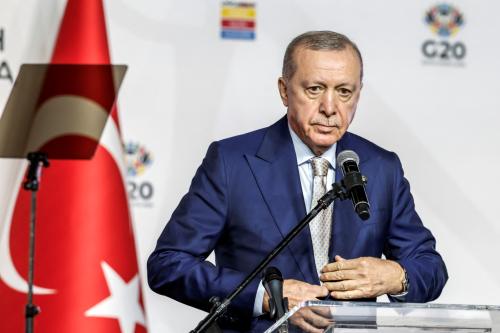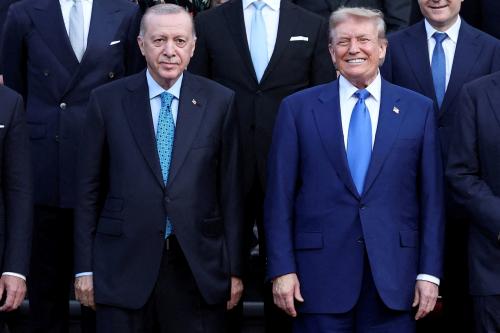

10:00 am EDT - 11:15 am EDT
Past Event
On May 14, Turkey will hold what could end up as its most consequential election of the last decade, with huge implications for the country’s domestic trajectory, its neighborhood, and the global balance of power. For the first time in his two decades of rule, President Recep Tayyip Erdoğan is facing a real challenge in the form of an anti-Erdoğan majority and a united opposition bloc.
In a highly polarized atmosphere, Turkish citizens will be voting to express their views on issues that range from Erdoğan’s controversial economic policies to regional issues and the government’s slow response to the devastating February 6 earthquake. But more importantly, they will be voting whether to continue the mandate for Erdoğan or to give the opposition coalition, with its pledge to return to rule of law and the parliamentary system, a chance.
On April 24, the Center on the United States and Europe convened a panel to discuss the state of play in Turkey’s upcoming elections, the political and economic trajectory, as well as the geopolitical implications of an Erdoğan or an opposition victory.
Viewers submitted questions by emailing [email protected] or via Twitter @BrookingsFP by using #TurkishElection.
Moderator
Discussant



Aslı Aydıntaşbaş
December 25, 2025

Sweta Shah, Lucy Bassett
November 25, 2025

Aslı Aydıntaşbaş
September 23, 2025